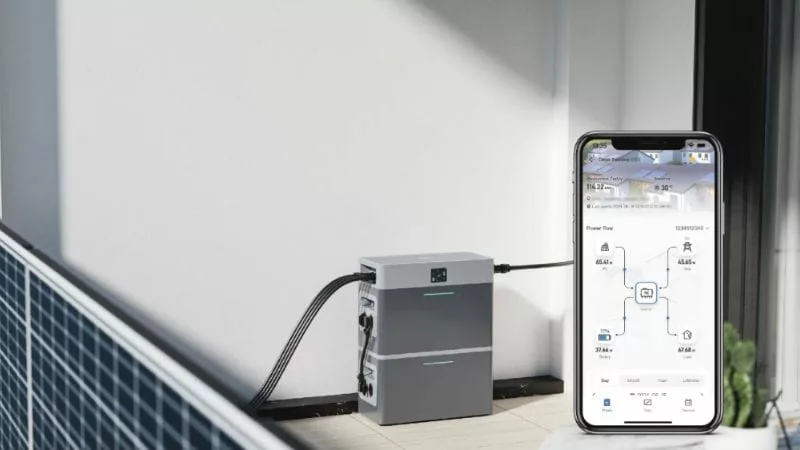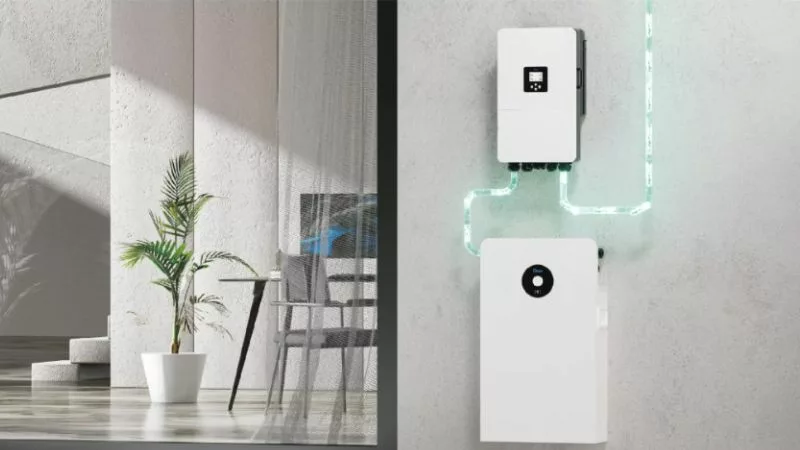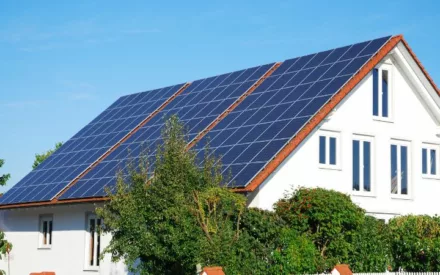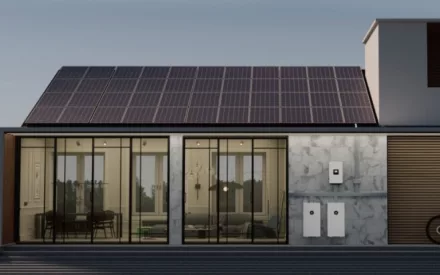Could I Put Solar Battery in My Loft?
A Friendly Guide to Loft Energy Storage Solutions
Looking to maximize solar energy storage in your home? Many homeowners wonder if they can install solar batteries in their lofts to save space and improve efficiency. Learn more about solar battery installation in lofts through our article.

Note: Installations should be performed by certified professionals to ensure safety and optimal performance.
Could I Put Solar Battery in My Loft?
Yes, you can install solar batteries in a loft, provided the space meets temperature requirements (typically 0-40°C), has adequate ventilation, can support the battery weight, and complies with local building codes.
Feasibility of Loft Installation
Most lofts can physically accommodate solar battery systems, but several factors determine if this is practical. Weight is a primary concern, as battery systems typically weigh between 40-120kg depending on capacity and technology.
A structural survey may be necessary to confirm the loft can support this additional load. Modern homes built with trussed rafters are generally suitable, while older properties might require reinforcement.
Temperature regulation is crucial as batteries operate best between 10-30°C. Lofts can experience temperature extremes, so insulation might be needed to maintain optimal conditions.
Access is another consideration – batteries require maintenance, and installing them in a space with good accessibility makes future servicing easier. A secure platform and clear pathway are recommended.
Pros and Cons of Loft Placement
| Pros | Cons |
| Saves valuable living spaceProvides natural protection from floodingKeeps system contained in one location if solar inverters are also loft-mountedReduces visible household technologyCan be more secure against tampering | Temperature fluctuations may affect battery efficiencyAdditional structural reinforcement might be neededMore challenging access for maintenancePotential heat dissipation issuesMay require extra safety measures |
Installation costs can increase if structural modifications are needed. However, many homeowners find these costs worthwhile compared to dedicating ground-floor space to battery storage.
Safety Considerations
Fire safety is paramount when installing batteries in lofts. All solar batteries should comply with UK safety standards and include built-in battery management systems (BMS) to prevent overheating.
Ventilation is essential to prevent heat buildup and gas accumulation. Professional installers should ensure adequate airflow around the battery units.
Electrical safety requirements include proper isolation switches and appropriate fire-rated cabling. All electrical work must comply with Building Regulations Part P and be certified by a qualified electrician.
Regular maintenance is crucial for loft installations, with annual checks by qualified technicians being recommended to ensure ongoing safe operation.

Maintenance and Monitoring
Proper maintenance and monitoring are necessary for solar battery systems installed in lofts.
Regular Checkups and Cleaning
Solar batteries installed in lofts require periodic inspection to ensure they remain in good working condition. Experts recommend checking your system every 3-6 months, with more frequent inspections during extreme weather seasons.
Dust accumulation is a common issue for loft-installed batteries. Use a soft, dry cloth to gently remove dust from the battery casing and connections. Never use water or cleaning chemicals on the batteries themselves.
Check for signs of corrosion around terminals and connections. White, green, or blue powdery substances indicate corrosion that should be addressed promptly by a professional.
Inspect the area around the batteries for signs of moisture, which can damage the system and create safety hazards. Ensure ventilation systems remain unobstructed to prevent overheating.
Temperature monitoring is crucial in loft environments. Most batteries perform optimally between 10-25°C, so note any significant temperature fluctuations during your inspections.
Monitoring Systems and Alerts
Modern solar battery systems come equipped with built-in monitoring capabilities that can be accessed remotely. These systems track battery health, charge cycles, and overall performance through user-friendly apps or web interfaces.
Key metrics to monitor include:
- State of charge (%)
- Depth of discharge rates
- Charging and discharging patterns
- Temperature readings
- System efficiency
Set up alert notifications for unusual patterns or potential issues. Most monitoring systems can send alerts via email or text message when batteries experience unexpected behavior or require attention.
Some advanced systems incorporate predictive maintenance features that detect potential problems before they occur. These systems analyze performance trends to identify when components might be deteriorating.
Consider installing additional temperature and humidity sensors in the loft space surrounding your batteries for enhanced environmental monitoring.
Regulations and Compliance
Installing solar batteries in lofts requires adherence to specific regulations and standards to ensure safety and proper functioning. Homeowners must navigate both national and local requirements before proceeding with installation in these unique spaces.
Building Codes and Standards
Most jurisdictions require solar battery installations to comply with electrical codes such as the National Electrical Code (NEC) in the US or IEE Wiring Regulations in the UK. These codes often specify minimum clearance requirements around batteries for ventilation and maintenance access.
Loft installations face additional scrutiny regarding structural support. Floor loading capacity must be sufficient to support the weight of battery systems, which can range from 50kg to over 100kg depending on capacity.
Fire safety regulations are particularly important for loft installations. Many building codes mandate specific fire-resistant enclosures when batteries are installed in habitable structures.
Local planning permissions may be required before installation. Some areas have restrictions on modifications to roof spaces, especially in conservation areas or listed buildings.
Certifications for Safe Installation
Qualified installers should hold relevant certifications such as MCS (Microgeneration Certification Scheme) in the UK or NABCEP (North American Board of Certified Energy Practitioners) certification in the US. These credentials ensure installers understand safety protocols specific to battery systems.
Battery products themselves require safety certifications like UL 9540 or IEC 62619 standards. These verify that batteries have undergone rigorous testing for fire safety, thermal runaway prevention, and electrical safety.
Manufacturers’ warranties often stipulate professional installation by certified technicians. DIY installations might void warranties and insurance coverage.
Insurance providers may require proof of compliant installation before covering systems. It’s advisable to notify insurers before installing batteries in loft spaces to ensure continued coverage.
Recommended Solar Battery for Your Loft

Deye Low Voltage Series offers an excellent solution for loft installations due to several key features:
- Temperature-Resilient Design: Operating range of -20°C to 55°C makes it ideal for loft environments
- Safety-First Chemistry: Cobalt-free lithium iron phosphate batteries with minimal thermal risk
- Compact Yet Powerful: Modular design starting from 5kWh, perfect for space-conscious loft installations
- IP65 Protection: Weather-resistant enclosure protects against dust and moisture common in loft spaces
- Intelligent BMS: Built-in battery management system monitors performance and ensures safe operation
- Long-Term Reliability: 6000+ cycles and 10-year warranty provide peace of mind
Get in touch with Deye’s expert team for:
- Free consultation for your specific needs
- Professional installation assessment
- Detailed quote and ROI analysis
- Installation scheduling
- After-sales support
Don’t wait to optimize your home’s energy storage. Contact us today to learn how Deye’s Low Voltage batteries can work in your loft space.




